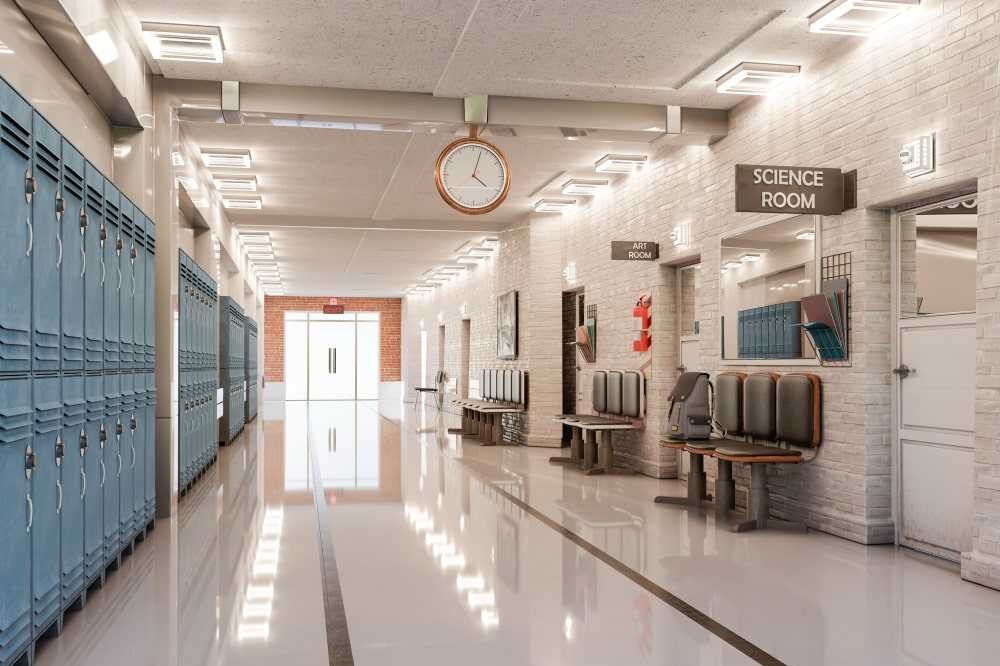A Brief Overview of UK Schools
The UK education system can be complex and confusing for those unfamiliar with it. However, by understanding the basics, you can make an informed decision about which type of school is right for you or your child.
Understanding the UK Education System
The UK education system is divided into several stages, starting with the early years of education and ending with higher education. The main stages are:
- Early Years: Ages 2-5 (Reception class)
- Primary Education: Ages 5-11 (Years 1-6)
- Secondary Education: Ages 11-18 (Years 7-13)
- GCSEs: Ages 14-16 (Years 10-11)
- A-Levels: Ages 16-18 (Years 12-13)
Contents
- 1 A Brief Overview of UK Schools
- 2 Types of Schools in the UK
- 3 UK Schools Admissions and Application Process
- 4 UK Schools Curriculum: What You Need TO Know
- 5 UK Schools Funding and Fees
- 6 Location and Facilities of UK Schools
- 7 Extracurricular Activities at Schools in the UK
- 8 Student Life at UK Schools
- 9 Career and University Preparation Support at UK Schools
- 10 List of UK Schools
- 11 Final Thoughts
- 12 FAQs
- 13 Top Schools in UK
Types of Schools in the UK
There are several types of schools in the UK, each with its advantages and disadvantages.
State Schools
State schools are funded by the government and are free to attend. They follow the National Curriculum and are required to accept all students, regardless of their abilities or disabilities.
Independent Schools
Independent schools are not funded by the government and charge fees for attendance. They are typically more selective in their admissions and offer a wider range of subjects and extracurricular activities.
Grammar Schools
Grammar schools are a type of state school that selects students based on their academic ability. They are known for their rigorous academic programs and high achievements.
Boarding Schools
Boarding schools are schools where students live on campus during the school term. They can be either state or independent schools and offer a structured and supportive environment for students.
Read More: Top UK Universities
UK Schools Admissions and Application Process
Applying to UK schools can be a competitive process, but with the right preparation, you can increase your chances of success.
Applying for UK State Schools
To apply for a state school, you must apply to your local council. You will be allocated a place based on your address and the school’s admission criteria.
Applying for UK Independent Schools
Applying for an independent school usually involves submitting an application form, attending an interview, and taking an entrance exam. Some schools also require a report from your current school.
UK Schools Entrance Exams
Entrance exams for independent schools typically include tests in math, English, and verbal reasoning. Some schools also require interviews or additional aptitude tests.
UK Schools Curriculum: What You Need TO Know
The UK school curriculum is designed to provide a comprehensive education for all students, from early years to higher education.
National Curriculum
The National Curriculum is followed by all state schools and covers subjects such as English, math, science, history, geography, and foreign languages.
GCSEs and A-Levels
GCSEs and A-Levels are the main qualifications studied in secondary education. They are internationally recognized and are required for entry to most universities.
UK Schools Funding and Fees
Attending UK schools can be expensive, but there is help available for those in need.
Funding for State Schools
State schools are funded by the government and are free to attend. However, there may be additional costs for uniforms, trips, and extracurricular activities.
Fees for Independent Schools
Independent schools charge fees for attendance, which can range from £3,000 to £30,000 per year. Some schools also offer scholarships or bursaries for students who cannot afford the full fees.
Location and Facilities of UK Schools
The location and facilities of a school can have a significant impact on your educational experience.
School Location
The location of a school can affect everything from the quality of the education to the availability of extracurricular activities. It’s important to consider the location of the school when making your decision.
School Facilities
School facilities can include everything from classrooms and libraries to sports fields and art studios. The availability of these facilities can affect your educational experience and should be considered when choosing a school.
Read More: All you Need to Know about UK Child Student Visa
Extracurricular Activities at Schools in the UK
Extracurricular activities are an important part of the UK school experience, offering students the opportunity to develop new skills and interests.
Sports
Sports are a big part of UK school life, with most schools offering a range of team sports and individual activities.
Arts and Culture
Arts and culture are also well-represented in UK schools, with many schools offering music, drama, and visual arts programs.
Read More: Primary Education in the UK
Student Life at UK Schools
The UK school experience is more than just academics, it’s about making the most of your time at school.
Boarding School Life
Boarding school life offers a structured and supportive environment for students, with opportunities for students to develop independence and responsibility.
Day School Life
Day school life offers more freedom and flexibility than boarding school but still provides a supportive and engaging educational environment.
Read More: Secondary Education in the UK
Career and University Preparation Support at UK Schools
UK schools offer a range of support and resources to help students prepare for their future careers and university studies.
Careers Advice and Guidance
Many UK schools offer career advice and guidance to help students make informed decisions about their future. This may include one-on-one consultations, workshops, and access to online resources.
University Preparation
UK schools also offer support for students preparing to apply to UK universities. This may include help with choosing the right courses, writing personal statements, and navigating the application process.
List of UK Schools
Below you can find the list of the top 50 UK schools:
- St Paul’s School, London – Independent school with an average A-Level score of 54.4
- Eton College, Berkshire – Independent school with an average A-Level score of 53.4
- Harrow School, London – Independent school with an average A-Level score of 52.9
- Winchester College, Hampshire – Independent school with an average A-Level score of 52.6
- Rugby School, Warwickshire – Independent school with an average A-Level score of 52.4
- Charterhouse School, Surrey – Independent school with an average A-Level score of 52.3
- Shrewsbury School, Shropshire – Independent school with an average A-Level score of 52.2
- Uppingham School, Rutland – Independent school with an average A-Level score of 52.1
- Repton School, Derbyshire – Independent school with an average A-Level score of 51.9
- Marlborough College, Wiltshire – Independent school with an average A-Level score of 51.8
- King’s College School, London – Independent school with an average A-Level score of 51.7
- Bedford School, Bedfordshire – Independent school with an average A-Level score of 51.6
- Oundle School, Northamptonshire – Independent school with an average A-Level score of 51.5
- Tonbridge School, Kent – Independent school with an average A-Level score of 51.4
- Wellington College, Berkshire – Independent school with an average A-Level score of 51.3
- Haileybury School, Hertfordshire – Independent school with an average A-Level score of 51.2
- Bryanston School, Dorset – Independent school with an average A-Level score of 51.1
- Canford School, Dorset – Independent school with an average A-Level score of 51.0
- Eastbourne College, East Sussex – Independent school with an average A-Level score of 50.9
- St Edward’s School, Oxfordshire – Independent school with an average A-Level score of 50.8
- Radley College, Oxfordshire – Independent school with an average A-Level score of 50.7
- Sedbergh School, Cumbria – Independent school with an average A-Level score of 50.6
- Giggleswick School, North Yorkshire – Independent school with an average A-Level score of 50.5
- Rossall School, Lancashire – Independent school with an average A-Level score of 50.4
- Fettes College, Edinburgh – Independent school with an average A-Level score of 50.3
- George Watson’s College, Edinburgh – Independent school with an average A-Level score of 50.2
- The Perse School, Cambridge – Independent school with an average A-Level score of 50.1
- The Leys School, Cambridge – Independent school with an average A-Level score of 50.0
- Haberdashers’ Aske’s Boys’ School, London – Independent school with an average A-Level score of 49.9
- Haberdashers’ Aske’s Girls’ School, London – Independent school with an average A-Level score of 49.8
- City of London School, London – Independent school with an average A-Level score of 49.7
- St Albans School, Hertfordshire – Independent school with an average A-Level score of 49.6
- Merchant Taylors’ School, Northwood – Independent school with an average A-Level score of 49.5
- North London Collegiate School, London – Independent school with an average A-Level score of 49.4
- Latymer Upper School, London – Independent school with an average A-Level score of 49.3
- Godolphin and Latymer School, London – Independent school with an average A-Level score of 49.2
- The Henrietta Barnett School, London – State school with an average A-Level score of 49.1
- The Tiffin School, London – State school with an average A-Level score of 49.0
- Wallington High School for Girls, London – State school with an average A-Level score of 48.
- Nonsuch High School for Girls, London – State school with an average A-Level score of 48.8
- Sutton Grammar School, London – State school with an average A-Level score of 48.7
- Wallington County Grammar School, London – State school with an average A-Level score of 48.6
- Tiffin School, London – State school with an average A-Level score of 48.5
- St Olave’s Grammar School, London – State school with an average A-Level score of 48.4
- Newstead Wood School, London – State school with an average A-Level score of 48.3
- Bexley Grammar School, London – State school with an average A-Level score of 48.2
- Chislehurst and Sidcup Grammar School, London – State school with an average A-Level score of 48.1
- Beths Grammar School, London – State school with an average A-Level score of 48.0
- Townley Grammar School, London – State school with an average A-Level score of 47.9
- Dartford Grammar School, London – State school with an average A-Level score of 47.8
Final Thoughts
Choosing the right UK school can be a daunting task, but by understanding the different types of schools available and the factors that are important to you, you can make an informed decision. Remember to consider the curriculum, admissions process, location, facilities, and extracurricular activities when making your choice.
Read More: Study in UK
FAQs
State schools are funded by the government and are free to attend, while independent schools are not funded by the government and charge fees for attendance. Independent schools are often more selective in their admissions and offer a wider range of subjects and extracurricular activities.
To apply for a state school, you must submit an application through your local council. You will be allocated a place based on your address and the school’s admission criteria.
GCSEs (General Certificate of Secondary Education) and A-Levels (Advanced Level) are the main qualifications studied in secondary education in the UK. They are internationally recognized and are required for entry to most universities.
Yes, some independent schools offer scholarships or bursaries for students who cannot afford the full fees. These are typically awarded based on academic achievement, financial need, or other criteria.
UK schools offer support for students preparing to apply to universities, including help with choosing the right courses, writing personal statements, and navigating the application process. It’s important to start preparing early and take advantage of the support available.







